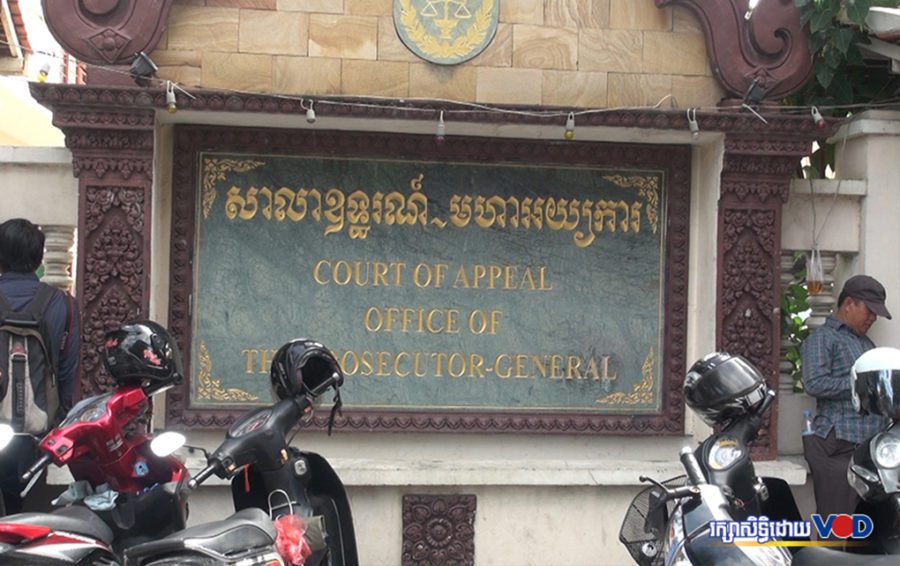An order to establish three regional appeal courts in Battambang, Preah Sihanouk and Tbong Khmum provinces aims to better serve regional cases and reduce the load on the Phnom Penh Appeal Court.
Rights observers, however, said that the new courts will remain as unjust as the current system — ranked second-worst in the world — unless improvements are made to ensure the judiciary’s fairness and independence.
The establishment of the three courts was detailed in a royal decree dated August 17, with Battambang covering the country’s west, Preah Sihanouk its south, Tbong Khmum the east, and Phnom Penh serving the capital and Kandal province.
Council of Magistracy secretary-general Sam Prachea Meanith told VOD that the three appeal courts should start their operations from April 1 next year.
Currently, potential appellants from across the entire country need to have their cases heard in Phnom Penh. The new courts would reduce costs and travel to make it easier for people living far from Phnom Penh, Prachea Meanith said.
They would also assist the overburdened Phnom Penh court, he said.
“Phnom Penh and Kandal province have more court cases than other areas,” Prachea Meanith said.
Am Sam Ath, monitoring manager for human rights organization Licadho, said many prisoners across the country were currently stuck in jail waiting for their appeals to be heard, and improving access to the appeal court system was a needed reform.
But trials and appeals would remain unfair unless the Justice Ministry eliminated corruption, nepotism and double standards in the courts, Sam Ath said.
“The creation of them will only partly contribute to the reform of the judiciary,” he said. “More important is how to make the judiciary independent and guarantee equality before the law, which means ensuring respect for human rights and justice.”
Political analyst Meas Nee offered a similar perspective, saying it was not enough to increase access to the courts, but to also prevent politicians from using those institutions as political tools.
“The fundamental requirement is the effective enforcement of the law and the independence of the court, and if the court isn’t independent and the law is still only loosely enforced, more deeply establishing the current system will only make it less likely to work,” Nee said.
The Tbong Khmum Provincial Appeal Court is set to handle complaints from 10 lower courts in the provinces of Tbong Khmum, Kampong Cham, Kampong Thom, Preah Vihear, Kratie, Stung Treng, Ratanakiri, Mondulkiri, Prey Veng and Svay Rieng.
Battambang province’s appeal court will cover cases from the seven provinces of Battambang, Kampong Chhnang, Pursat, Pailin, Banteay Meanchey, Oddar Meanchey and Siem Reap.
Preah Sihanouk will handle the six provinces of Takeo, Kampot, Kep, Kampong Speu, Koh Kong and Preah Sihanouk.
The World Justice Project in February ranked Cambodia 125 out of 126 countries in its Rule of Law Index — above only Venezuela — saying its court system was the worst in the world for civil justice, or whether the handling of civil cases is “accessible and affordable as well as free of discrimination, corruption, and improper influence by public officials.”
(Translated and edited from the original article on VOD Khmer)













